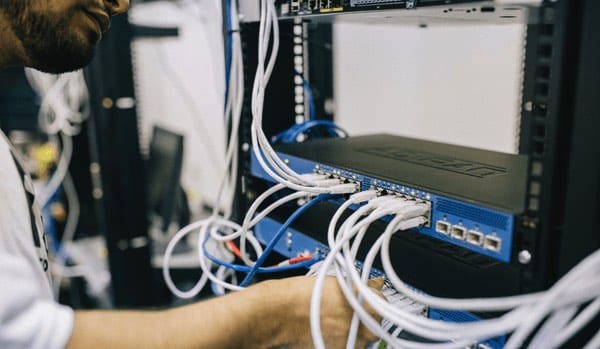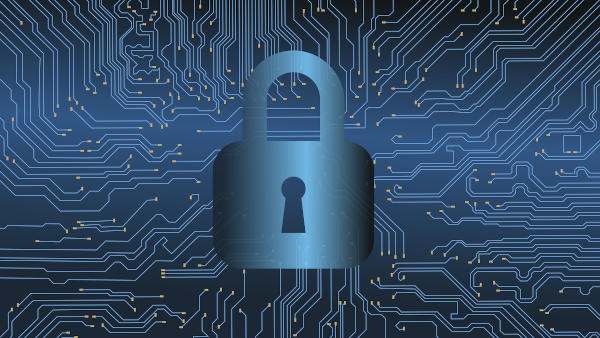Disinfection and removing the virus is a “hot” topic lately.
Many businesses have imposed a reactive strategy for a “triggering event” such as a viral outbreak or a sick employee. With the proliferation of the Coronavirus, businesses and property owners must look for ways to get ahead of the virus. The best way to stay ahead of any potential contaminations is with a more proactive approach.
We recently spoke with Travis Correll from Emory Industrial Services, to learn more about their commercial and industrial disinfection service. Emory utilizes a specialized disinfectant called MicroSURE, an eco-friendly, CDC-approved, and EPA-registered industrial-strength product. It remains on a surface for a long period of time. Unlike many disinfectants that only kill viruses and bio-treats, MicroSURE kills bio-threats and also remains on the treated surface. And when viruses come into contact with it, it “mechanically” kills the biothreat. MicroSURE was originally created for wound care. As a result, it’s a very safe, non-toxic product for humans to come in contact with.
How Does MicroSURE Work?
The key difference between MicroSURE and other disinfectants is how it kills a biothreat. Most disinfectants “chemically” kill while MicroSURE “mechanically” kills a threat. Bleaches and alcohols chemically break down the fatty lipid bilayer that holds a virus together. MicroSURE, on the other hand, employs a different “killing technique” than bleaches or alcohol.
Instead of chemically dissolving a virus’s outer membrane, it forms nanoscopic crystalline structures. These structures mechanically pierce the fatty lipid membrane of a virus. A good way to describe this is to think of a porcupine. A porcupine pierces any threat that comes into contact with it. MicroSURE’s crystalline structures, when viewed on a nanoscopic level, look like frozen grass blades. Those blades “stab” and kill any threat that they come into contact with. Hence the term “mechanical” kill. And those nanoscopic blades remain on the surface for long periods to continually kill viruses and threats into the future; alcohols and bleaches do not.
What’s the Most Effective Means of Application?
In addition, Emory applies the MicroSURE disinfectant using electrostatic backpack sprayers. Electrostatic technology is the most efficient and effective means to apply the disinfectant for consistent, even coverage.
Here’s how it works. The MicroSURE disinfectant leaves the nozzle positively charged. When it reaches the surface (which is typically negatively charged), it attaches onto the surface evenly. As a result, virtually no part of the surface is left uncovered. Electrostatic spraying technology is also used in painting metals. It creates an “even coat” that would be very difficult to achieve without electrostatically charging the paint. The same laws of physics apply to the application of MicroSURE.
What Have We Learned About the Virus?
Since COVID-19 is a novel Coronavirus, we still have a lot to learn. However, here are a few things that we’ve learned:
- Surfaces: A recent study by the New England Journal of Medicine indicates some surfaces are more conducive to COVID-19 survival than others. For example, Coronavirus typically survives on harder, non-porous surfaces longer. Such surfaces include stainless steel, glass, and plastics. Studies have indicated that COVID-19 can remain on harder surfaces for up to 2 or 3 days. While more porous materials such as cardboard or paper have a shorter lifespan.
- COVID-19 is Rather Easy to Kill: Viruses that are enveloped in a protective coating, such as COVID-19, are the easiest types of viruses to deactivate. In contrast, gastrointestinal viruses like the norovirus have a tough outer shell and are significantly harder to break down. This is great news, as this Coronavirus has a “wimpy” protective shell that breaks down easily. That said, MicroSURE pierces the virus’s weak outer shell where other more toxic disinfectants chemically dissolve that membrane.
- Effectiveness of MicroSURE: MicroSURE is 99.99% effective against the most common germs and viruses, including COVID-19. Once treated, there’s virtually no chance that a bio-threat will survive. And once the MicroSURE is applied, introductions of new virus particles will be “mechanically” killed by the MicroSURE on the treated surface.
In summary, we recommend that businesses and property owners anticipate biothreats with a proactive approach. This includes a regular disinfection program (generally weekly or bi-weekly). The emphasis of the program is killing viruses and also providing lasting protection against threats. Regardless of the cleaning product or method used, it’s always better to stay ahead and mitigate potential threats to your workplace before they happen.






